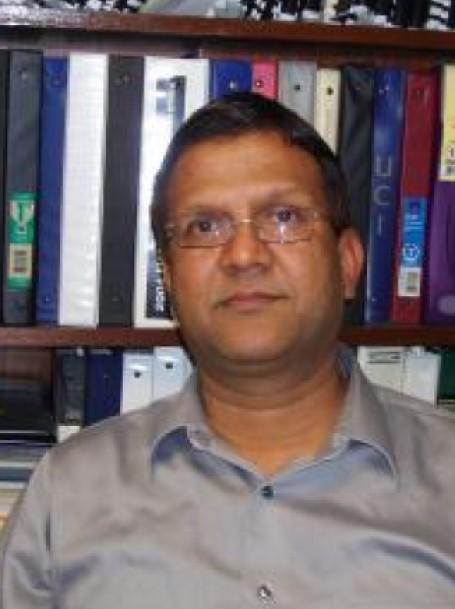Anil Kumar K. Agrawal
Professor
Building
Steinman Hall
Office
T-193
Fax
212-650-8442

Anil Kumar K. Agrawal
Profile
Research Assistant (May 1988 to September 1989) Department of Civil Engineering, I.I.T. Kanpur, India.
Graduate Research Assistant (October 1989 to September 1991) Department of Civil Engineering, University of Tokyo, Tokyo, Japan.
Research Engineer (October 1991 to December 1993) Mitsui Construction Co. Ltd., Tokyo, Japan.
Graduate Research Assistant & Post-Doctoral Researcher (January 1994 to 1997) Department of Civil Engineering, University of California, Irvine, CA.,
Education
Ph.D. Civil Engineering (1997) Department of Civil Engineering, University of California, Irvine, CA.
Master of Engineering (1991) Department of Civil Engineering, University of Tokyo, Tokyo, Japan.
Bachelor of Technology (1988) Department of Civil Engineering, Indian Institute of Technology, Kanpur, India.
Courses Taught
- Structural Dynamics and Earthquake Engineering
- Structural Vibration Control Using Passive
- Semi-Active and Active Control Systems
- Smart Materials and Intelligent Structures
- Benchmark Problem for Response Control of Wind-Excited Tall Buildings
- System Identification, and Health Monitoring of Structures
- Performance Evaluation of Existing Structures Using Measurements
- Development of Dynamics Laboratory Facility at the City College of New York
Research Interests
Professor Agrawal is currently involved in structural control systems research, such as passive dampers, tuned mass dampers, active/hybrid and semi-active control systems, have been widely accepted as effective means for protection of civil engineering structures against earthquakes and wind loads. While many structural control devices and control algorithms have been proposed for such applications, a systematic study to investigate advantages and disadvantages of these devices and algorithms is yet to be conducted. The objectives of benchmark studies are to make direct comparisons between performance of devices and algorithms using a particular benchmark structure, a set of external excitations and a set of performance criteria. Such studies are important for successful development of structural control devices and algorithms, and resolve issues that are critical in practical applications of structural control systems.
Publications
Additional Information
- Current Professional Affiliations
- American Society of Civil Engineers (ASCE) Member,
- ASCE Committee on Engineering Mechanics Member,
- ASCE Committee on Structural Control Member,
- ASCE Sub-Committee on Performance of Structures
- International Associate of Bridge and Structural Engineering (IABSE)